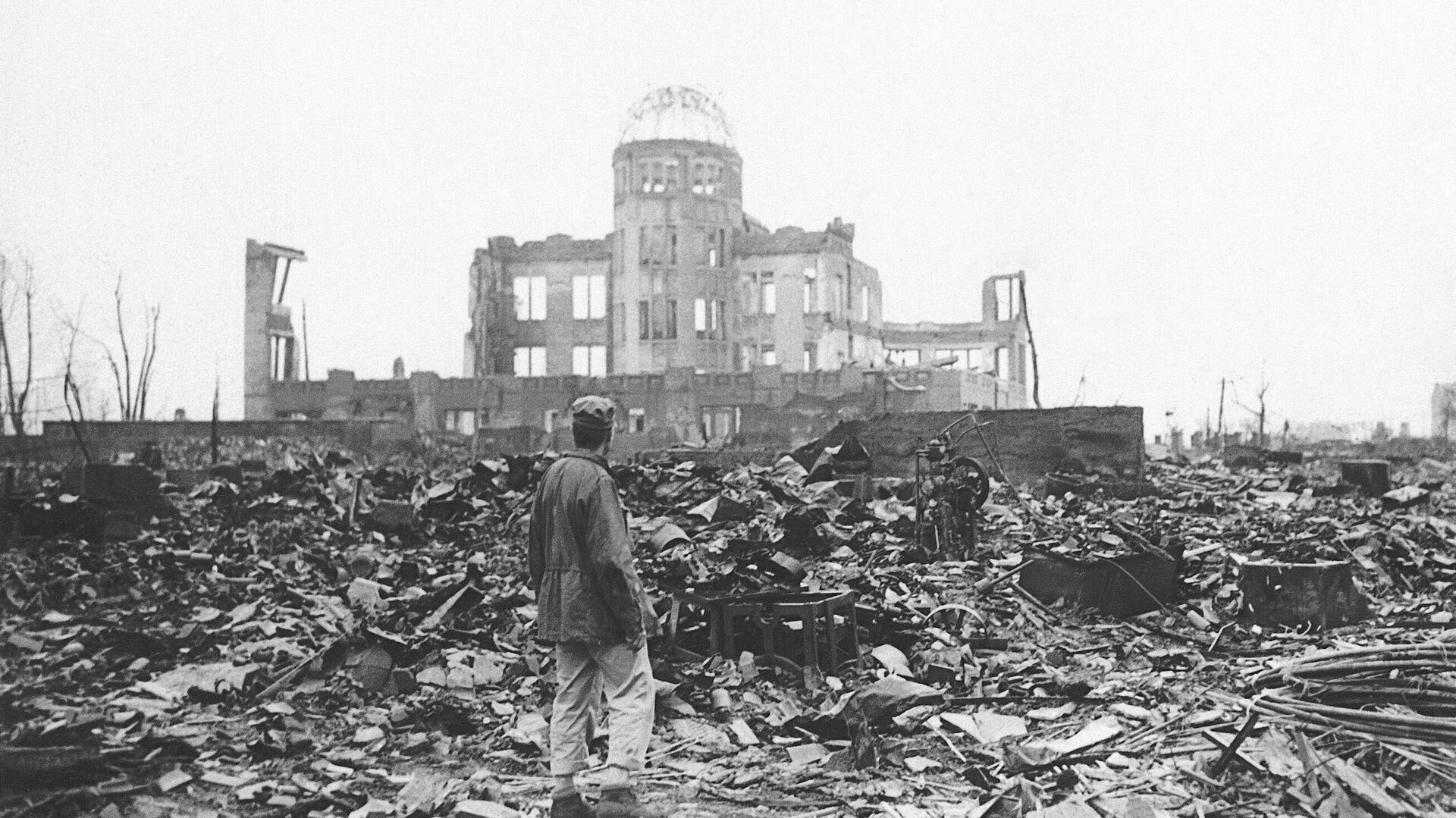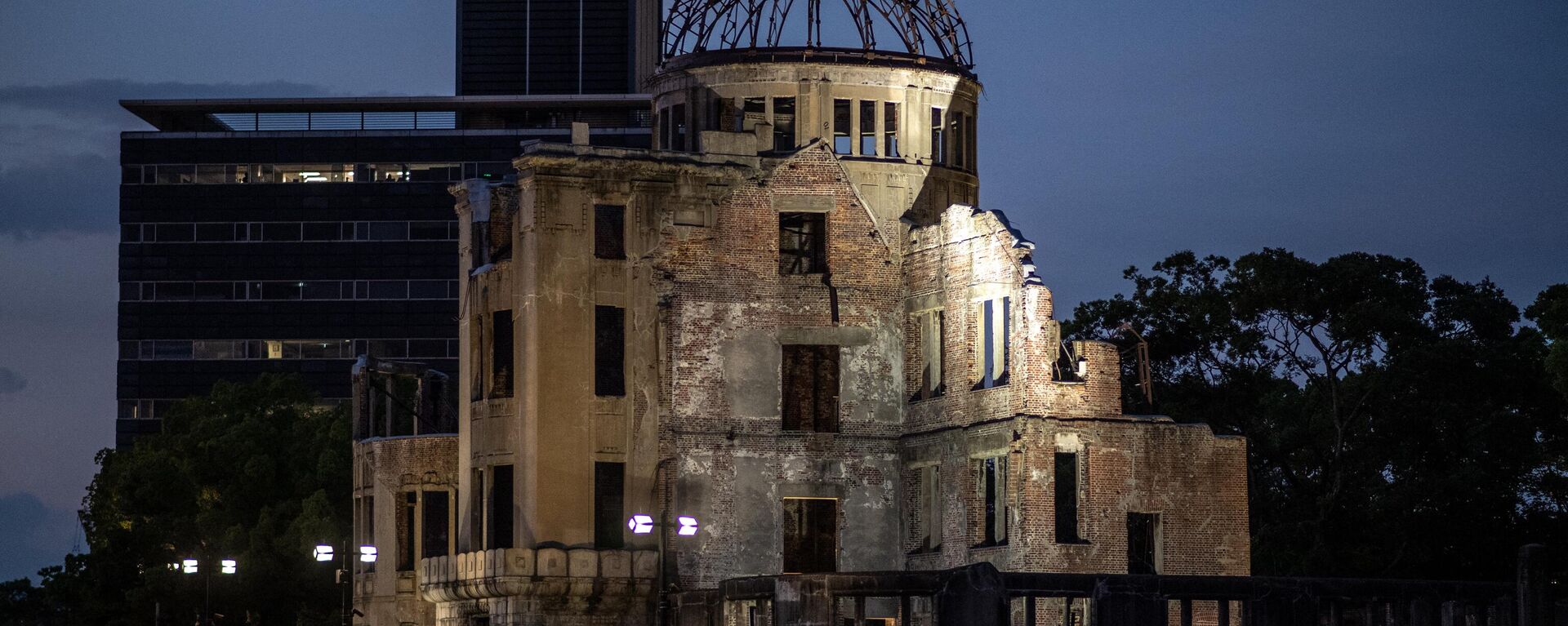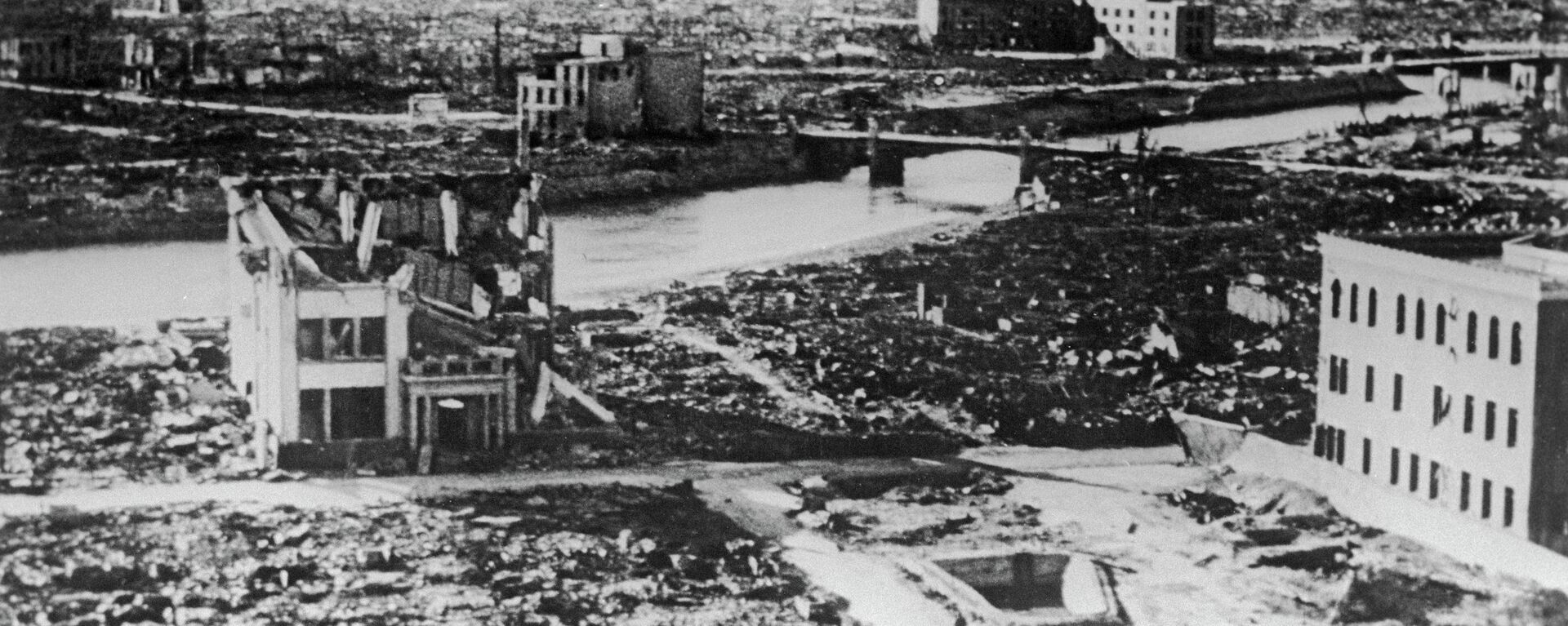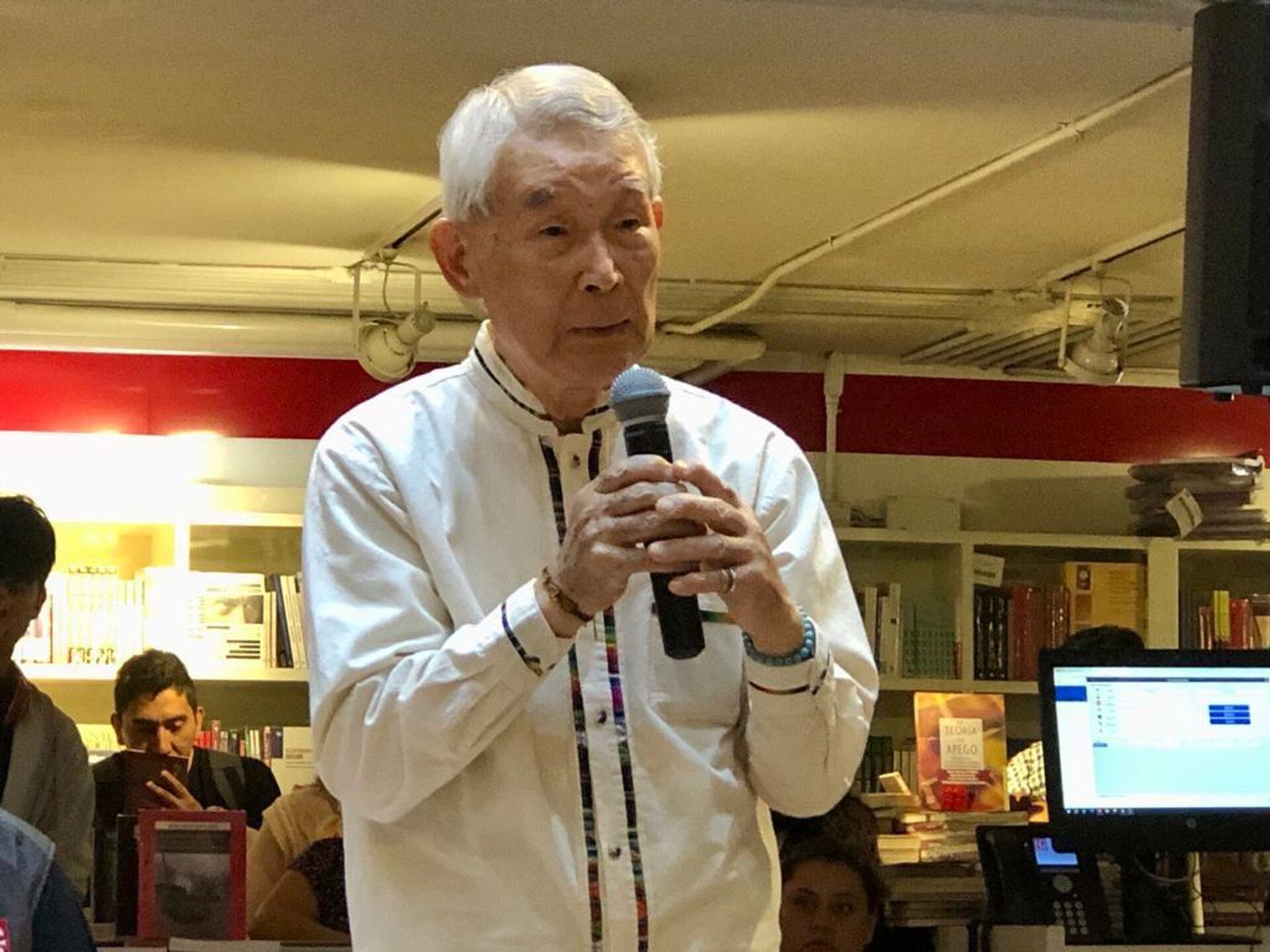https://en.sputniknews.africa/20230812/they-laughed-at-me-nagasaki-survivor-accuses-us-of-hiding-information-about-nuclear-bombing-1061263766.html
'They Laughed at Me': Nagasaki Survivor Accuses US of Hiding Information About Nuclear Bombing
'They Laughed at Me': Nagasaki Survivor Accuses US of Hiding Information About Nuclear Bombing
Sputnik Africa
On August 6 and 9, 1945, the United States detonated two atomic bombs over the Japanese cities of Hiroshima and Nagasaki. As many as 120,000 Japanese, mostly... 12.08.2023, Sputnik Africa
2023-08-12T09:44+0200
2023-08-12T09:44+0200
2023-08-12T10:27+0200
international
japan
mexico
united states (us)
hiroshima
nagasaki
world war ii
bombings
nuclear weapons
opinion
https://cdn1.img.sputniknews.africa/img/07e7/08/0c/1061269766_0:289:2612:1758_1920x0_80_0_0_5a9576f2cc672953ac015689e569c67a.jpg
The US attempts to conceal information after the atomic bomb was dropped on the Japanese city of Nagasaki on August 9, 1945, led to years of discrimination against the local population, said Yasuaki Yamashita, a survivor of the attack.The 84-year-old Japanese, who was just six years old at the time and had to overcome all the hardships the survivors had faced, explained how he lived through this tragedy with his family.Although the Americans emphasized in every possible way the unprecedented power of their new weapon, they completely denied its radioactivity. There is no residual radiation after the explosion, the city is safe for people, and the Japanese reports of "atomic poisoning" are propaganda, they used to say.The US blocked information about radiation contamination on all fronts by confiscating the reports of Japanese doctors, censoring the press, intimidating independent scientists, and misleading the general public.Moreover, he recalled that the survivors were rejected on a professional and personal level, prevented from starting families, advancing their aspirations and living normal lives. How Was Hell?Yamashita was just a child when Fat Man, an atomic bomb composed of Plutonium 239, fell on the territory of Nagasaki. Days before this tragedy, the port of Nagasaki had been attacked, as well as the Medical School and the Hospital of the Japanese city, so the residents lived in fear of what might happen in the weeks to come.On that day, Yamashita had planned to play in the mountains with his friends, but he decided to stay home and this saved his life, as his friends died from injuries caused by the atomic bomb.His sister was injured, and after the explosion, the three fled to one of the shelters closest to their home.Due to a lack of food, Yamashita's family left the shelter to live with their relatives who were farmers. To get there, they had to pass through the epicenter where the atomic bomb exploded.Arrival in MexicoAfter the atomic bombing of Nagasaki in 1945, there was a period of famine and economic hardship. Yamashita's health problems hampered his ability to keep a steady job.Eventually, economic problems and discrimination led him to travel to another country, and in 1968 he arrived in Mexico City to work with a Japanese newspaper on the Olympic Games that were being held in the Mexican capital. Later, he decided to stay a few more years to learn Spanish. Although he went to the doctors, he didn't tell them that he was a survivor of the atomic bomb in Nagasaki. He finally decided to reveal his secret in a conference in front of students in 1995.
https://en.sputniknews.africa/20221222/1061110765.html
https://en.sputniknews.africa/20220806/1061111111.html
japan
mexico
united states (us)
hiroshima
nagasaki
Sputnik Africa
feedback@sputniknews.com
+74956456601
MIA „Rossiya Segodnya“
2023
News
en_EN
Sputnik Africa
feedback@sputniknews.com
+74956456601
MIA „Rossiya Segodnya“
Sputnik Africa
feedback@sputniknews.com
+74956456601
MIA „Rossiya Segodnya“
international, japan, mexico, united states (us), hiroshima, nagasaki, world war ii, bombings, nuclear weapons, military
international, japan, mexico, united states (us), hiroshima, nagasaki, world war ii, bombings, nuclear weapons, military
'They Laughed at Me': Nagasaki Survivor Accuses US of Hiding Information About Nuclear Bombing
09:44 12.08.2023 (Updated: 10:27 12.08.2023) Longread
On August 6 and 9, 1945, the United States detonated two atomic bombs over the Japanese cities of Hiroshima and Nagasaki. As many as 120,000 Japanese, mostly civilians, were killed immediately by the blasts, while tens of thousands more died later from radiation exposure.
The US attempts to conceal information after the atomic bomb was dropped on the Japanese city of Nagasaki on August 9, 1945, led to years of discrimination against the local population, said Yasuaki Yamashita, a survivor of the attack.
The 84-year-old Japanese, who was just six years old at the time and had to overcome all the hardships the survivors had faced, explained how he lived through this tragedy with his family.
Although the
Americans emphasized in every possible way the unprecedented power of their new weapon, they completely denied its radioactivity. There is no residual radiation after the explosion, the city is safe for people, and the Japanese reports of "atomic poisoning" are propaganda, they used to say.
"They said that the survivors surely had some contagious disease and that they had to separate us. This happened as there was absolutely no information because the United States prohibited talking about the atomic bomb," he said during the presentation in Mexico City of the book Hibakusha: Yasuaki Yamashita's testimony, written by the specialist in Japan and migration issues, Sergio Hernandez.
The US blocked information about radiation contamination on all fronts by confiscating the reports of Japanese doctors, censoring the press, intimidating independent scientists, and misleading the general public.
"Japanese doctors began to do research, but when the Americans entered, they confiscated all the research [...]. That's why people who didn't understand started to discriminate us," Yamashita said.
Moreover, he recalled that the survivors were rejected on a professional and personal level, prevented from starting families, advancing their aspirations and living normal lives.
"They laughed at me, but it wasn't just me. Many women left Hiroshima and Nagasaki to get married and have children, but once everyone found out where they came from, they got divorced [...]. There were many suicides of men and women [for this reason]," said Yamashita, who came to Mexico in 1968.
Yamashita was just a child when
Fat Man, an atomic bomb composed of Plutonium 239, fell on the territory of Nagasaki. Days before this tragedy, the port of Nagasaki had been attacked, as well as the Medical School and the Hospital of the Japanese city, so the residents
lived in fear of what might happen in the weeks to come.
On that day, Yamashita had planned to play in the mountains with his friends, but he decided to stay home and this saved his life, as his friends died from injuries caused by the atomic bomb.
"When we entered [the house] a tremendous light came, as if there were 1,000 lightning bolts at the same time [...]. My mother pulled me to the ground, she used her body as a shield to protect me, and then there was a very strong explosion. We felt like thousands of things were flying above us and, suddenly, there was total silence. When we got up, windows, doors and roofs had disappeared," he recalled.
His sister was injured, and after the explosion, the three fled to one of the shelters closest to their home.
Due to a lack of food, Yamashita's family left the shelter to live with their relatives who were farmers. To get there, they had to pass through the epicenter where
the atomic bomb exploded.
"It was still full of bodies. There was nothing [of buildings], everything was burned and destroyed. It was a completely black place. We had to walk through all the rubble. But they also had no food and we returned to our home to reestablish our normal lives," Yamashita added.
After the atomic bombing of Nagasaki in 1945, there was a period of famine and
economic hardship. Yamashita's health problems hampered his ability to keep a steady job.
Eventually, economic problems and discrimination led him to travel to another country, and in 1968 he arrived in Mexico City to work with a Japanese newspaper on the Olympic Games that were being held in the Mexican capital. Later, he decided to stay a few more years to learn Spanish.
"I was fascinated to be in Mexico, but after two years, I started vomiting and spitting blood," Yamashita said.
Although he went to the doctors, he didn't tell them that he was a survivor of the atomic bomb in Nagasaki. He finally decided to reveal his secret in a conference in front of students in 1995.
"Memories began to appear in my mind. I suffered a lot while speaking, but I was able to finish my speech. At the same time, I felt that this [pain] that I had kept for almost 50 years was diminishing. I felt relief. I said 'this is my therapy. I have to speak'. For us, it is an obligation to make the whole world understand what happened in Hiroshima and Nagasaki," Yamashita recalled.




